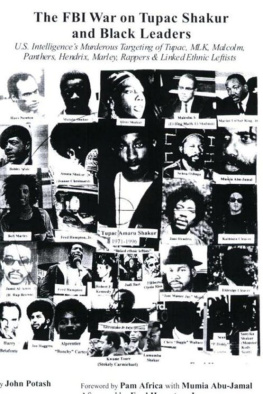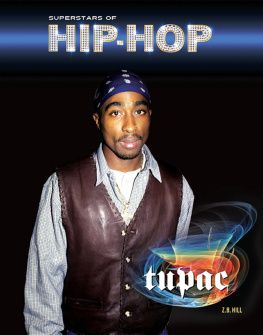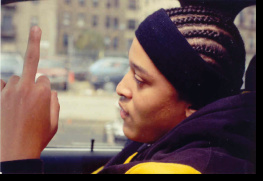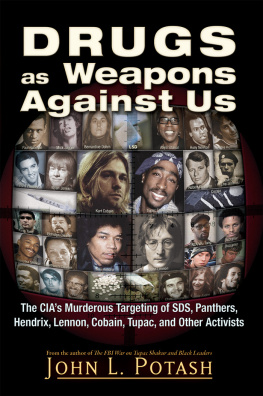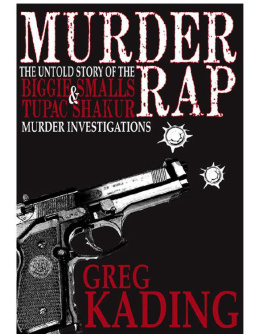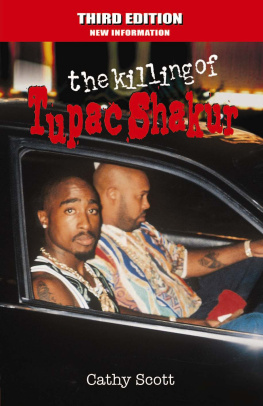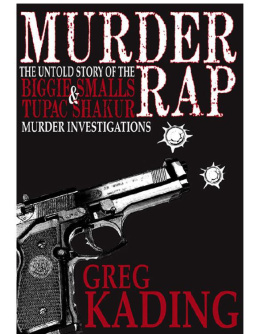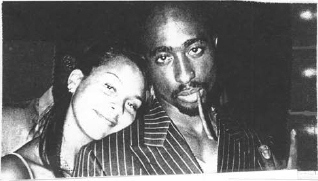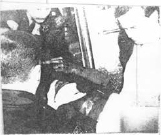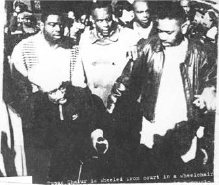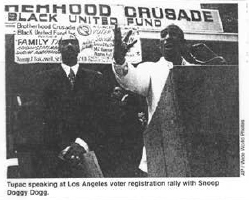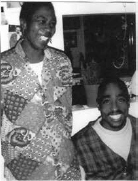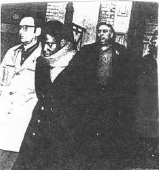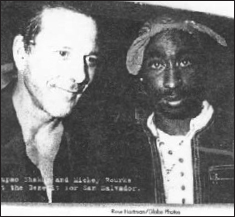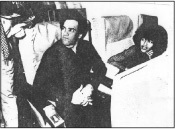The FBI War on Tupac Shakur and Black Leaders
U.S. Intelligences Murderous Targeting
of Tupac, MLK, Malcolm, Panthers, Hendrix,
Marley, Rappers & Linked Ethnic Leftists
by
John Potash
Foreword by Pam Africa
with Mumia Abu-Jamal
Afterword by Fred Hampton, Jr.
Progressive Left Press Baltimore, MD
Copyright 2007 by John Potash
Copyrights are required for books produced in the U.S. Until a different system of laws are in place, this publisher must only allow properly referenced quotations of up to 500 sequential words to be used without permission as long as the total number of words doesnt exceed 2,000. For a longer quotation or total words, the authors should email Progressive Left Press for permission at
Library of Congress Cataloging-in-Publication Data
Potash, John
The FBI War on Tupac Shakur and Black Leaders: U.S. Intelligences Murderous Targeting of MLK, Malcolm, Panthers, Hendrix, Marley, Rappers & Linked Ethnic Leftists / by John Potash; Foreword by Pam Africa with Mumia Abu-Jamal; Afterword by Fred Hampton, Jr.
p.cm.
Includes footnotes.
ISBN 09791469-0-9
st limited Progressive Left Press printing September 2007
st bulk printing, January 2008
nd (final) printing October 2008
rd printing October 2009
th printing April 2010
th printing December 2010
th printing September 2011
th printing August 2012
th printing June 2013
th printing March 2014
For information regarding special discounts for bulk purchases, please contact Progressive Left Press at (410)960-7744, or which is likely in need of updating.
More Praise for The FBI War on Tupac Shakur and Black Leaders , and the author (continued from back cover):
"Incredible! Wow . [ The FBI War on Tupac... ] really raised the bar on revolutionary investigative journalism. It's what the Movements have been needing to raise consciousness regarding various operations by the reactionaries and their agents."
- Sanyika Shakur (aka 'Monster' Kody Scott). Best-selling author of Monster: The Autobiography of an LA Gangmember . Shakur turned into a radical leftist while in prison and developed political plans with Tupac for reducing drug dealing and drug violence in American cities.
"I'm already on page 70 - and that is a miracle with all the reading I generally have to do, but this book is WOW."
-Rebecca S. Myles , News Reporter/ :Producer/ Anchor/ Engineer, WBAI Pacifica Rdio 99.5 FM New York City
"Everytime I re-read it, I find something new. John Potash has researched extensively on the acts of political state repression on culture. This book must be read by everyone into HipHop culture, but especially by people who are serious about creating a new and better world."
-Orlando Green , National Treasurer of the National HipHop Political Convention and co-founder of HipHop Sustains.
"I love this book. Its painful truths are part of a national healing process that is long overdue. What these murder victims had in common was Blackness and leadership, a combination so terrifying to Uncle Sam that he sends out his goons when he thinks he sees it. To read this book is to learn why some of the greatest music, art, and oratory of the 20th Century was never composed at all. The lawless "intelligence community" - what Theodor Adorno called "the werewolves who emerge in the night whenever someone has to be done away with" - destroyed these men and robbed America. A Black President is a great a step forward but our path, like that of South Africa, had better include a phase of truth-telling about the role of American authorities --persons and programs inside CIA, FBI, and certain police departments--in our nation's racist horrors past and present, or we will never reach the social maturity of real peace. This book by John Potash is part of the same national healing process as the great "Unspeakable" trilogy by James W. Douglas on the murders of President Kennedy, Dr. King, and Malcolm X. Read it and pass it on."
- James Hecht, PhD. Senior Staff Writer,
www.fromthewilderness.com, author of Limousine, Midnight Blue .
"For John Potash, with more thanks than I can say. We move on!"
-Julia Wright , journalist, daughter of the first best-selling African-American novelist, Richard Wright, after this author presented a paper at the 100-year celebration of her father's birth. This was part of a panel: "Richard Wright: An Inconvenient Hero." It consisted mostly of sons and daughters of activist figures targeted by U.S. intelligence such as Wright and Stretch Johnson along with Ethel and Julius Rosenberg.
"Enlightening, stimulating, incredibly detailed and painstakingly researched...a masterly presentation."
-Ahati N. N. Toure, PhD. Assistant Professor of Africana History and Black Studies, Department of History, Political Science, and Philosophy, Delaware State University. Author of John Henrik Clarke and the Power of Africana History . Praise given of a presentation by the author of The FBI War on Tupac Shakur and Black Leaders regarding the book, to his class.
John Potash is arguably the definitive voice on Tupac Shakurs death.
-Dedon Kamati , host of Freedom Now on KPFK Los Angeles and former Black Panther.
My friends and I from the U.S. Intelligence community all read this book and picked it apart to try and find errors in it, but none of us could find any.
-Mill Butler , who spent years doing U.S. Intelligence contract work in the Washington D.C. area.
#3 in Top Ten books for Summer/Fall Reading 2012. Chris
Stevenson , BlackCommentator.com
Contents
Chapter
1. Tupac with fiancee kidada jones, daughter of music mogul & Vibe owner, Quincy Jones.
2. Tupac giving finger to press horde minutes after he took four bullets in New York.
3. Tupac wheeled into NY court with business manager, New Afrikan Peoples Org. founder, Watani Tyehimba.
4. Tupac speaking for Brotherhood Crusade, LA group fighting anti-affirmative action bill.
Tupac with his mother, Afeni Shakur.
Landov photos, from Jamal Josephs Tupac Shakur Legacy
5. NY Black Panther leaders, Afeni Shakur arrested with husband, Lumumba by NYPD.
6. Tupac with friend, actor Mickey Rourke, at a benefit for El Salvador.

